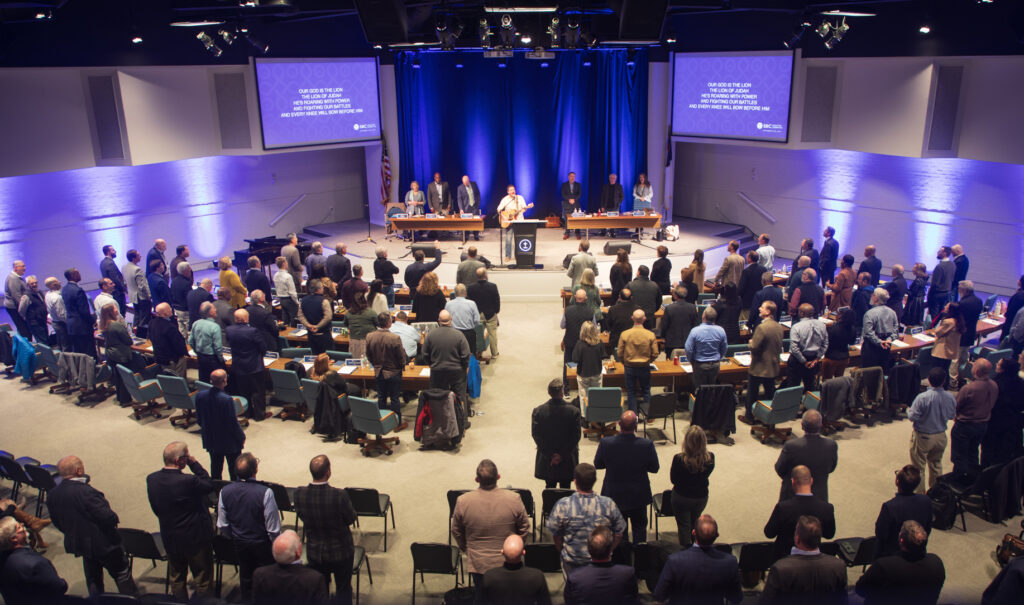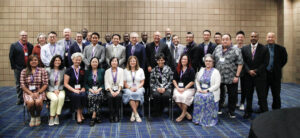
Perhaps one of the most important roles in our entire Convention belongs to the trustees of our entities. Former president and CEO of the Executive Committee, Morris Chapman once said, “The strength of the Southern Baptist Convention is its people…This [nomination and trustee process] is open to any and every Southern Baptist who is a member in good standing of a Southern Baptist Church. Whether you choose to engage in the process is a matter for you to prayerfully determine…Trustees have a critical role in the life of the Southern Baptist Convention.”
This is a true and profound statement because a board of trustees governs each SBC entity. The messengers elect board members through the nomination process. A trustee is nominated by the Committee on Nominations to fill a vacancy from a particular state or region. At the SBC annual meeting each June, these nominated trustees are considered by the messengers and approved for service. The trustee’s primary role is to represent the messengers and ensure that the ministry assignments of the various entities are carried out.
To serve as a trustee, you must meet the requirements outlined in Bylaw 15, “Committee on Nominations.” Traditionally two characteristics have been ranked extremely high on selected persons for service: (1) whether the candidate embraces the Baptist Faith and Message (BF&M) and (2) whether the candidate’s home church has regularly given undesignated receipts through the Cooperative Program. Simply put, the trustees of our entities must embrace our statement of faith and be a member of a cooperating church through financial gifts to the Cooperative Program or an entity of the convention.
But what some have not realized is the vital role that our trustees play. Bylaw 15 states specifically, “The committee shall recognize the principle that the persons it recommends shall represent the constituency of the Convention, rather than the staff of the entity.” [3] In other words, a trustee doesn’t work for the entity. They serve our Convention of churches acting as a direct link between the churches and the entities. The trustee holds the President of the entity accountable, encouraging them toward success. They are a deliberative body, not simply a rubber stamp for the ideas and plans of the entity President. Rather, the trustees are a cooperative body that links arms together with the President to fulfill the mission. They are there to listen, support, but also push back and give feedback/critiques to keep the actions of the entity in harmony with the desires of the Convention.
The trustees do not run the entity. They are the ones entrusted with overseeing the entities to make sure that they are carrying out the cooperative, joint mission of the SBC. Trustees govern, outline strategies, and oversee general budgets while entity staff perform the tasks and oversee operational details. In essence, our trustees are the guarantee for how the Cooperative Program monies are being spent.
The SBC has sometimes been described as a big funnel. The wide end is the cooperating churches. They choose to partner together to fulfill the Great Commission but are diverse and distinct. Churches that closely identify with the Southern Baptist Convention are those who voluntarily and formally agree to be in friendly cooperation with similar churches, by agreeing to share a like-minded faith and practice and make financial contributions through the Cooperative Program or directly to an entity. These local churches send messengers to represent their interests at the national annual convention. In like fashion, the messengers then elect officers (who appoint certain committees) to represent their interests.
Trustees are then nominated and selected from this wide swath and are like the narrow tip of the funnel. The trustees are entrusted with the oversight of the entities. Therefore, they must adhere to our governing documents and entity charters as well as align more closely with our statement of faith to help ensure that our entities do not contradict these beliefs which guide their ministries. So even though a cooperating church is autonomous and doesn’t have to affirm the BF&M, the trustees of our entities must affirm it so that they can hold the entities (who are bound by them) accountable in their work.
In addition to Tara Dew, this essay was co-written by Cooperation Group members Richard Land, Travis Kerns and Jim Richards.

















